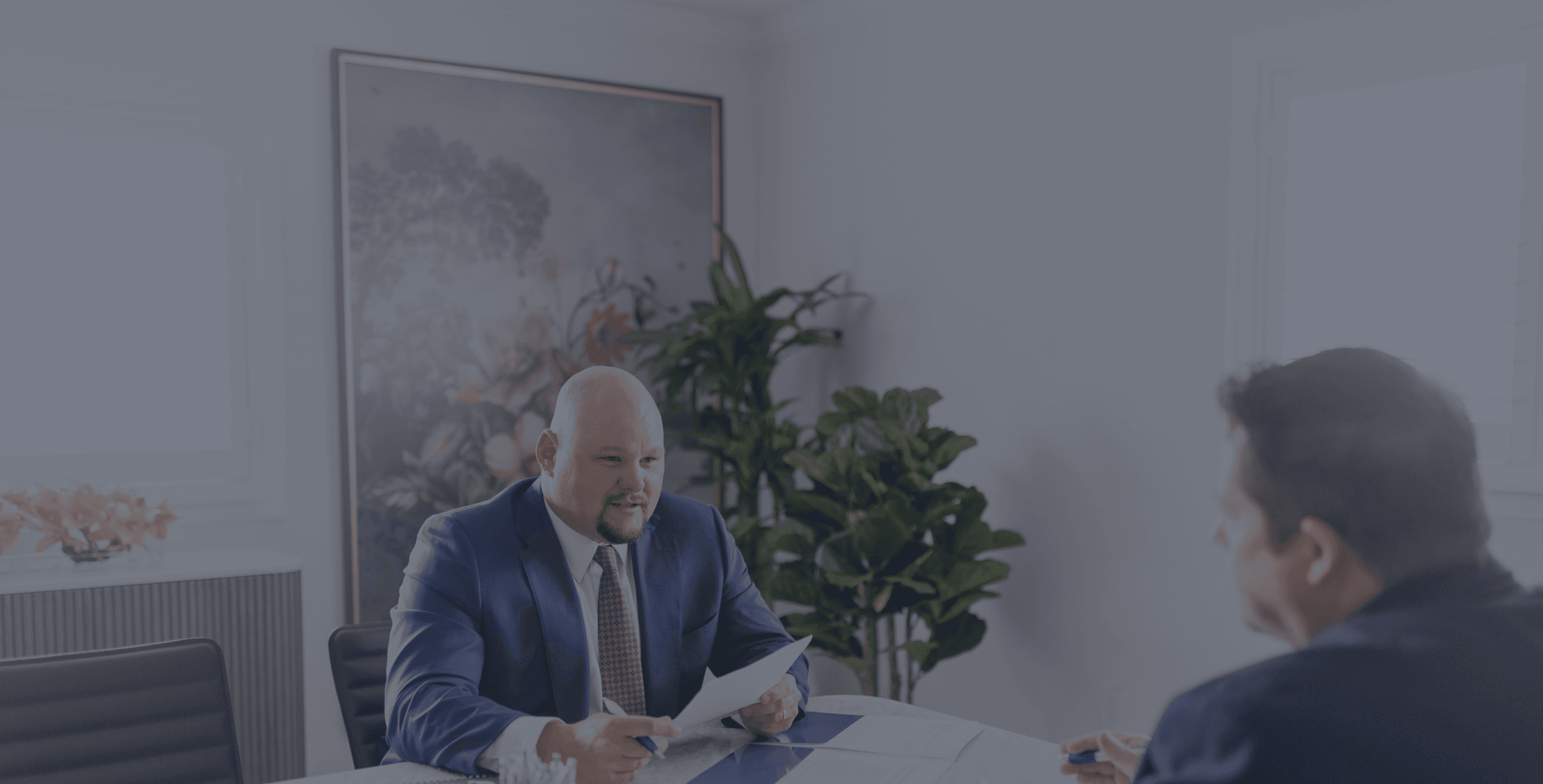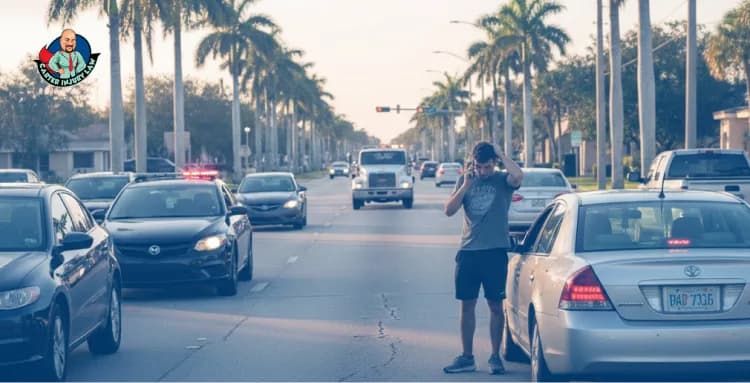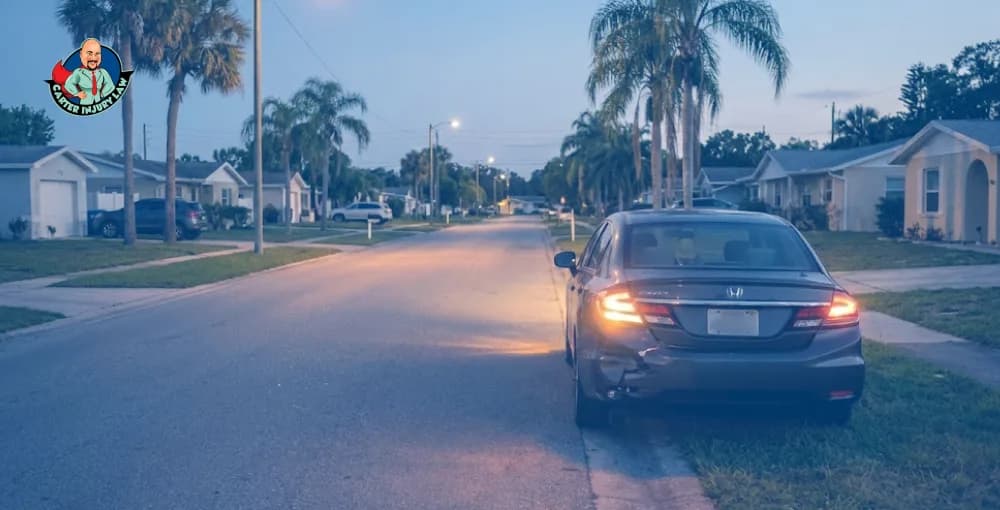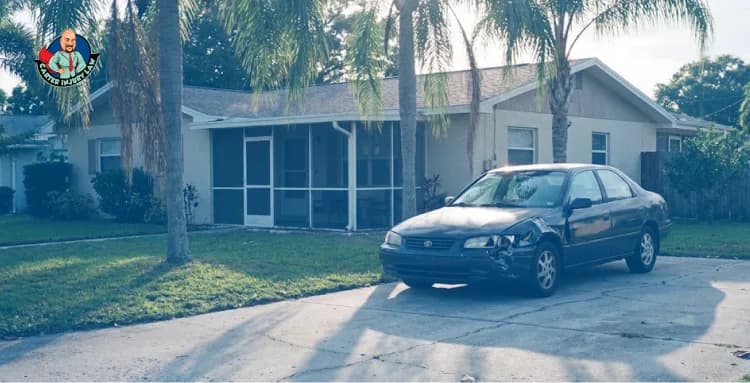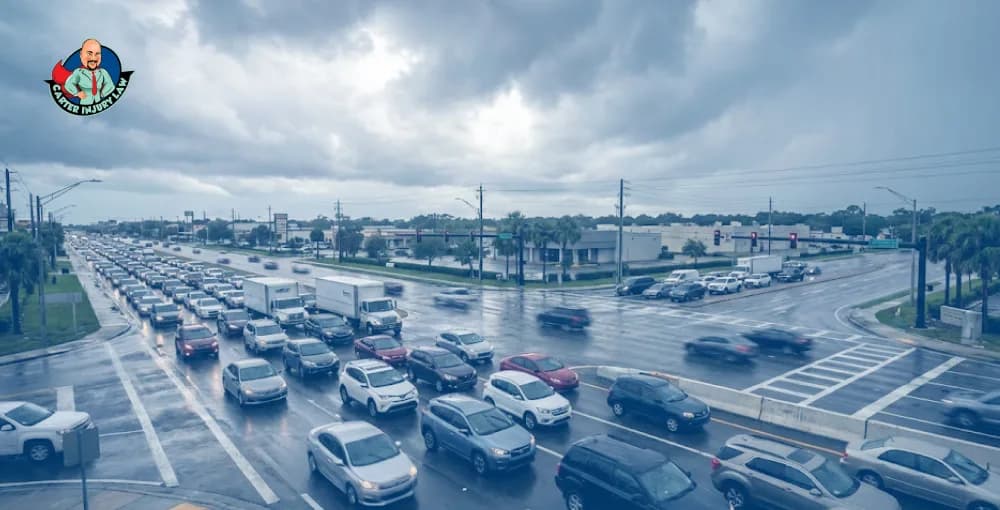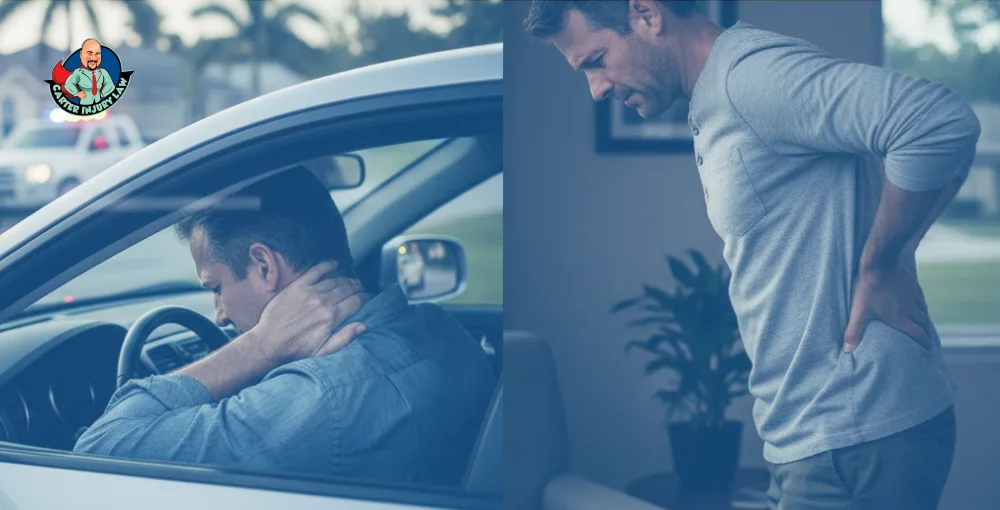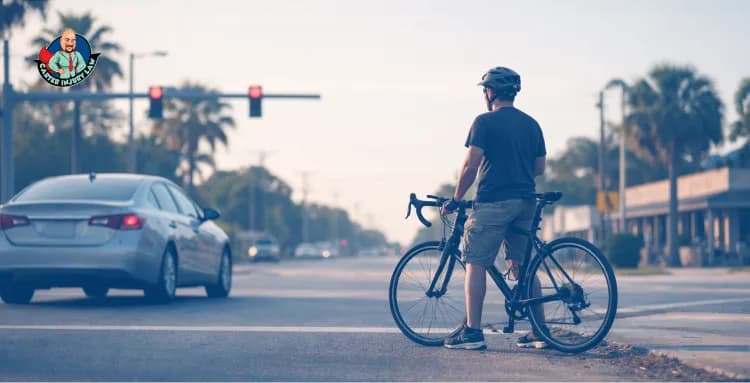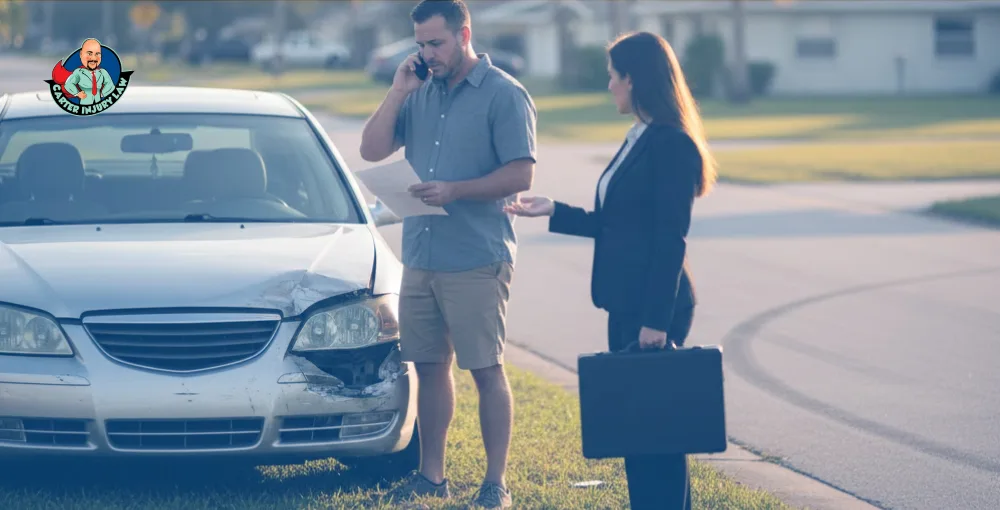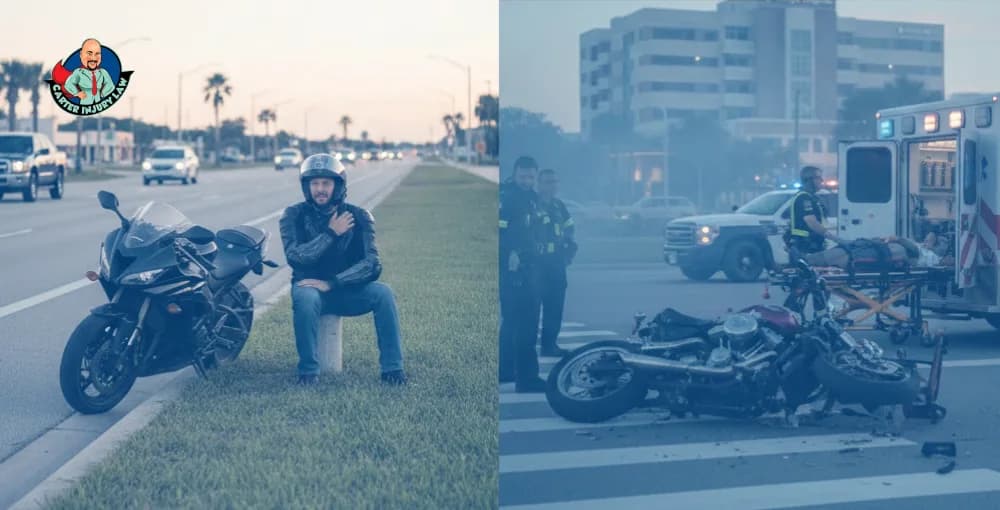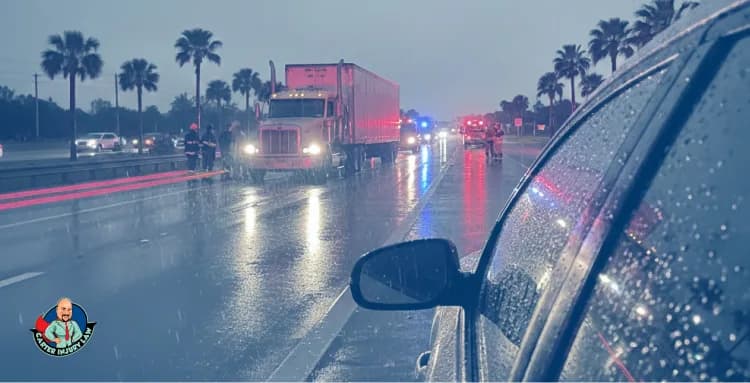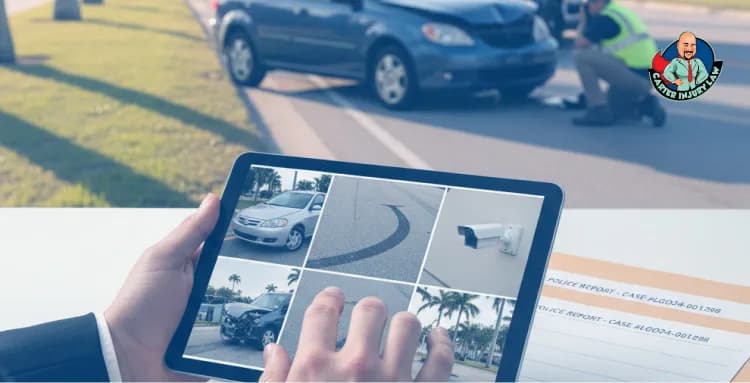You don’t notice how fragile a moment is until it shatters.
One second, you’re crossing the street under a warm Tampa sky. Maybe you're pedaling your bike on your usual route, thinking about dinner, a phone call, or a playlist. And then—screeching tires, the blur of a car, pain where there wasn’t any.
It’s strange how something as simple as walking or biking—things we’ve done since childhood—can turn dangerous in an instant. We share the roads with people we don’t know, trusting they’re alert, focused, and responsible. But not everyone is.
And that’s where this conversation begins—not in fear, but in awareness. Because if you walk or ride a bike in Tampa or anywhere nearby, you deserve to know what to do if the road turns against you.
1) The Risks: Why Biking and Walking Are Becoming More Hazardous
If you’re out there walking or riding your bike, it’s not as safe as it used to be. The roads have changed, the traffic’s heavier, and the system just hasn’t kept up.
A big part of the problem is Infrastructure. You’ve got areas in Tampa where sidewalks just stop out of nowhere. Bike lanes are either too narrow or shared with speeding traffic. Some intersections don’t have proper signals or crossings, which means pedestrians and cyclists are left to figure things out on their own. That kind of setup creates confusion and confusion on the road leads to accidents.
Then there’s driver behavior. More people are distracted behind the wheel—texting, rushing, not paying attention. And you’ve got those aggressive drivers who treat the road like a racetrack. The mix of inattention and recklessness is a real threat, especially to someone on foot or riding a bike with zero protection around them.
And let’s not forget when a vehicle hits a pedestrian or bicyclist, the injuries are almost always serious. There's no metal frame or airbags to cushion the blow. It’s your body versus a car. The outcome can be devastating like broken bones, head trauma, life-changing injuries. These aren’t minor fender-benders. They’re real, painful situations that can change everything in a heartbeat.
That’s why knowing your risks and your rights is so important.
2) The Role of Uninsured Motorist Coverage
Here’s something a lot of people don’t realize that your car insurance can actually protect you even when you’re not in your car. If you’ve got uninsured or underinsured motorist coverage—what we call UM or UIM coverage—it could be one of the smartest things you have on your policy.
Why is that important? Because not every driver out there has insurance. And some of them have the bare minimum, which doesn’t go very far if you’ve been seriously injured. Now imagine you're hit while walking or biking. You’re vulnerable, you're hurt and the person who hit you either doesn’t have insurance or not enough to cover your medical bills, lost wages, or long-term care.
If you've got it, and especially if you've got it stacked across multiple vehicles, you’re giving yourself a bigger safety net. Stacking just means you’re combining the coverage limits from more than one vehicle on your policy.
So, for example, if you’ve got two cars and $50,000 of UM on each, stacking gives you up to $100,000 in potential coverage. That extra coverage can make a huge difference if you're facing a long recovery after an accident.
And yes, it can cover you even if you were walking across the street or riding your bike when the accident happened. You weren’t in your car but the policy still follows you. It’s one of those details that can really catch people off guard in a good way.
More for you: How to File a Claim After Being Hit by an Uninsured Driver In Florida
3) What to Do Immediately After an Accident
When you’ve been hit—whether you were walking or biking—everything feels like a blur. However, what you do in those first few moments can make a huge difference later on, especially if you’re thinking about filing a claim.
First and foremost, get medical attention. That’s not just about covering your injuries—it’s about protecting your health long-term. A lot of people try to shake it off, say “I’m fine,” and skip the hospital. However, the truth is, some injuries take hours or even days to show up. Getting checked out right away can catch things early, and it also creates a clear medical record tied to the accident.
Next, document everything. If you’re physically able or if someone with you can help, start taking photos and videos right there at the scene. Get pictures of where it happened, the position of the vehicle, the bike or pedestrian path, any damage to your bike or personal items, and, of course, your injuries. Video is great too, especially if traffic conditions or weather played a role.
Why does all this matter? Because that evidence becomes the foundation of your case. Memory fades, witnesses disappear, and the scene changes. But photos and videos stay solid. They tell your story clearly—what happened, how it happened, and how serious it really was.
Sometimes, it’s easier to hear the details straight from an expert. In this video, Rob Johnson breaks down the key steps you should take if you’ve been involved in a bicycle or pedestrian accident in Florida.
4) Filing a Claim as a Pedestrian or Bicyclist
A lot of people think that if they weren’t in a car at the time of the accident, they can’t file a claim. That’s just not true.
If you were hit by a vehicle while walking or biking, you absolutely have the right to file an injury claim. Whether the driver was distracted, speeding, or just flat-out careless, you were the one who ended up injured, and the law gives you the right to seek compensation for that.
Now, timing matters. Florida has specific deadlines for when you can file a personal injury claim. Waiting too long could mean losing your chance altogether. That’s why it’s so important to talk to a lawyer early—so you understand what your options are before time runs out.
When it comes to what you can recover, it’s not just about your medical bills. A claim can cover a lot more than people realize. That might include lost income if you’ve been out of work, future medical expenses, pain and suffering, and in some cases, long-term care or rehabilitation costs.
You may want to know: How Long Will Your Personal Injury Case Take? Carter Injury Law Reveals the Truth
5) Understanding PIP (Personal Injury Protection) Benefits
Here’s something that surprises a lot of people—your Personal Injury Protection (PIP) benefits might still apply even if you were walking or riding a bike when the accident happened. Yep, even if you weren’t behind the wheel.
If you own a car in Florida, you’re likely required to carry PIP coverage on your auto insurance. And in certain situations, that coverage can step in to help with medical bills after a pedestrian or bicycle accident. That sounds like a good thing—and sometimes it is—but this is where you really want to slow down and talk to a lawyer first.
Because accepting PIP benefits isn’t always the best move. In some cases, it can actually work against your claim, especially if there are other insurance policies or legal strategies that would offer stronger protection or higher compensation.
When to Call Carter Injury Law (And What You’ll Get)
You don’t need to wait until things get complicated to call a lawyer. In fact, the sooner you get guidance, the better.
A lot of people hesitate because they think calling an attorney means they’re committing to a lawsuit or paying out of pocket. That’s not how we work at Carter Injury Law. The consultation is completely free—no cost, no obligation. You’ve got questions, and I’m here to help you get some clarity, plain and simple.
Whether you were walking across the street or biking through your neighborhood, accidents like these come with a lot of unknowns. Insurance companies don’t always play fair. Medical bills pile up. And trying to figure it all out on your own can feel overwhelming.
My job is to listen to your story and show you what your legal options look like from here. If you’ve got a case, I’ll tell you. If you don’t, I’ll tell you that too. Either way, you’ll leave the conversation with answers and a lot more confidence.


